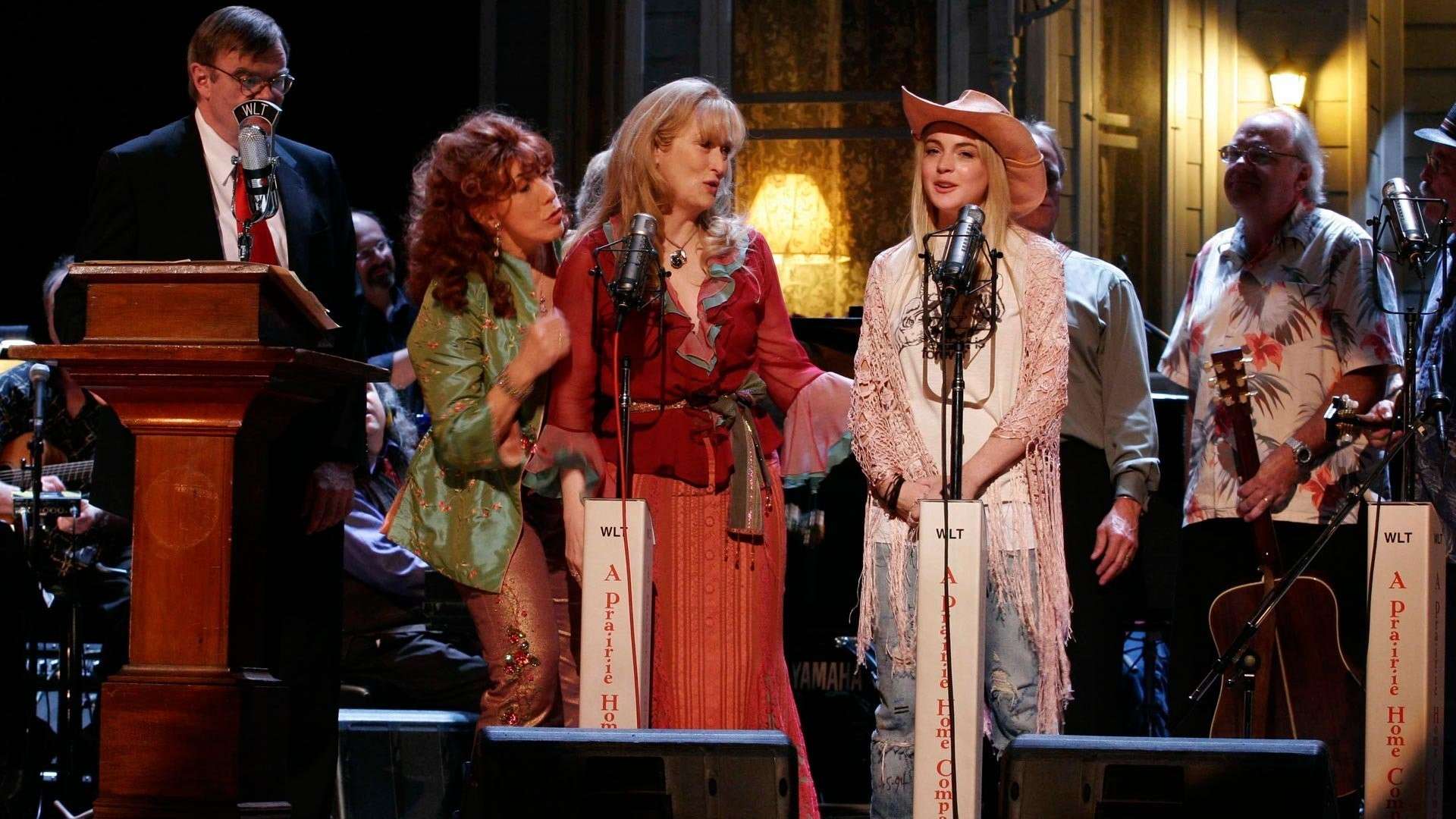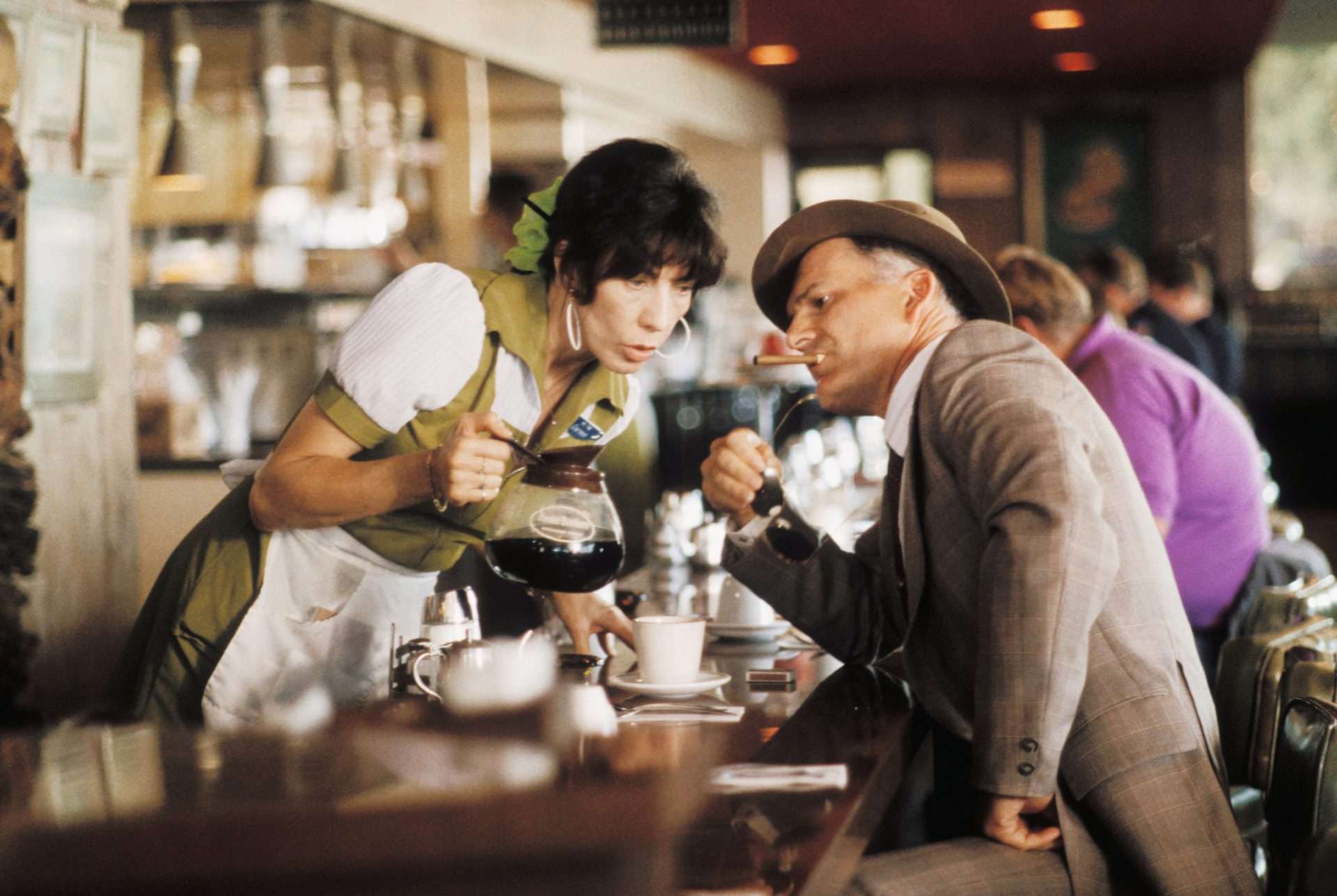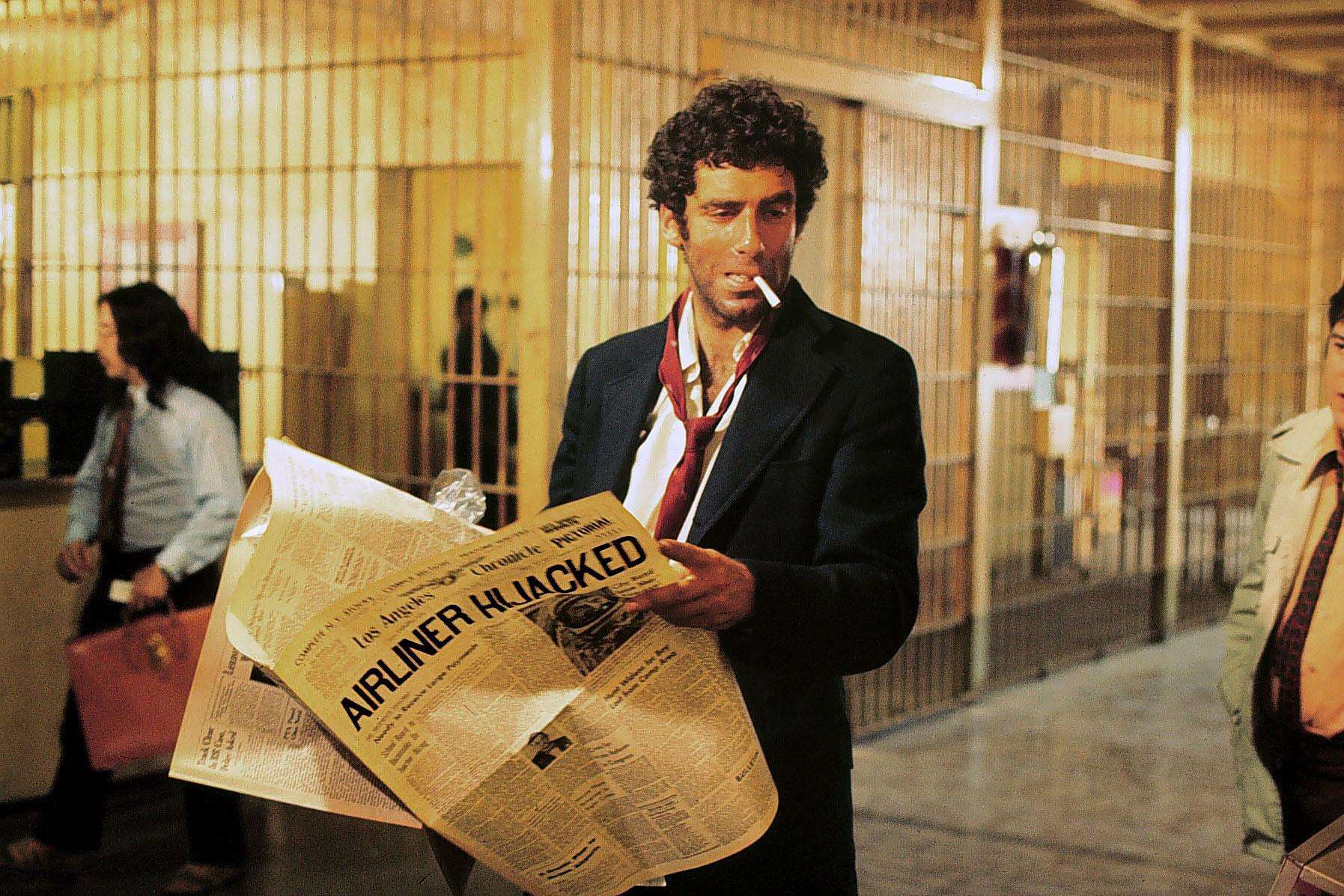At the peak of his powers, Robert Bernard Altman towed a line between the stylized and naturalistic that few have since achieved. In the 1970s, he churned out masterpiece after masterpiece: enduring classics that helped to carve out a distinctive new canon of American cinema. Altman’s films are dictated by their ensemble casts, with each character given a depth of characterization that novelists would envy, and by the atmosphere created by the director’s mastery over camera movement and overlapping audio tracks.
Now let’s count down the top 10 films from this titan of US filmmaking, covering his ‘70s heyday, ‘90s renaissance, and some hidden gems from his fallow period in between.
10. Secret Honour, 1984

Much of Altman’s 1980s output had a grounding in theatre, such as the one-location dramas Come Back to the Five and Dime Jimmy Dean, Jimmy Dean (’82), or Streamers (’83). This was perhaps a result of budgetary constraints. But in Secret Honour – a one-person monologue deconstructing the downfall of Richard Nixon – the single setting emphasizes the mental claustrophobia felt by a man on the edge. Philip Baker Hall portrays Nixon in a virtuosic guitar solo performance, the camera subtly stalking his erratic movements and throes of histrionics. Secret Honour is the political and historical rendered personal.
Much of the contemporary historiography on Watergate views the event in the abstract, interrogating its effects on the collective American psyche. In contrast, Altman gives Nixon himself the floor to thoroughly explore the personal failings of a scandal that revealed the grisly heart of American politics. Others have suggested that the film’s personal emphasis indicates something more profound, portraying Secret Honour as a critical self-portrait of the director himself – another ‘70s icon in freefall. However, Altman (unlike Nixon) would soon return to the top of his field, and the gripping melodrama of Secret Honour is proof that the magic never really went away.
9. A Prairie Home Companion, 2006

Altman’s final feature film is as much indebted to the work of Garrison Keillor, the pioneer of public radio who penned the screenplay, as it is to its marvelous ensemble cast. Amid Woody Harrelson, Tommy Lee Jones, Kevin Kline, John C. Reilly, Meryl Streep, and Lily Tomlin, even Lindsay Lohan is given space to deliver the most moving performance of her career. There have been dozens of films and TV shows about saving a venue or institution in peril. Still, the plot mechanics never feel contrived in the hands of such detailed characterizations and layered performances. The film’s unvarnished sentimentality is a strength in Altman’s hands, underpinned by a self-awareness typical of the titular radio show’s wry Southern charm.
It is also notable that Altman’s final film (made at the age of 80, with protégé Paul Thomas Anderson literally on standby for insurance reasons should he have fallen ill) is about endings. The trademark overlapping dialogue of A Prairie Home Companion primarily comprises old friends reminiscing about their fondest memories with a wink and a smile. The song numbers celebrate the communal joys of tradition and storytelling. This subtext makes the appearance of old friend and frequent collaborator Lily Tomlin especially touching. In contrast with the camaraderie of the final live show, the film’s ending could feel anti-climactic, but you sense the cast members wouldn’t want it any other way, and the same applies to Altman in his decision to finish his fine career with this moving swan song.
8. 3 Women, 1977

One of Robert Altman’s most brazenly uncommercial films is also one of his best. The meandering, dreamlike psychological drama 3 Women may be the sort of film you’d expect more from Ingmar Bergman or Apichatpong Weerasethekul than this New Hollywood renegade, but by synthesizing elements of surrealism with an authentic portrayal of small-town America, Altman delivers a cohesive masterpiece. The cohesion and clarity of vision are especially impressive, considering the film allegedly came to Altman in a fragmented dream.
The dream even went as far as to include Sissy Spacek and Shelley Duvall in the imagined cast, though in truth, it’s hard to imagine the roles embodied by anybody else. Duvall is girlish and sweet in her own way but also eerie in a way that Kubrick would later exploit in The Shining. Spacek, at the time, was rapidly proving her credentials as a vital new movie star. Her piercing blue eyes and freckles reflect the themes of lost innocence and developing feminine identity, rendering 3 Women such a compelling entry in her filmography. Though it may appear daunting in its narrative opacity, engaging with this deeply affecting film is crucial to understanding Altman’s careful handling of female characters, a trait ever-present in his work.
7. Tanner ’88, 1988

Politics has never been far from the fore for Robert Altman. We have, of course, already discussed the Watergate drama Secret Honour. Moreover, there is an implicit political commentary in his ‘70s work as well, which subverted the founding myths of American history and culture. However, it wasn’t until 1988, with the fiendishly clever satire Tanner ’88, that the director tackled political structures and electoralism head-on. In collaboration with writer Garry Trudeau and HBO, Altman launched one of the most audacious projects of his career as a miniseries tracking the campaign of fictional senator Jack Tanner was broadcast in the real-life lead-up to the 1988 US election.
Looking back today, you can see how Robert Altman’s innovations helped transform the realms of TV comedy and what was possible with the ‘mockumentary’ genre. It’s a natural home for his brand of earthy, overlapping dialogue, emphasized by including contemporaneous political figures such as Bob Dole and Jesse Jackson. Rather than showing its age, the show now feels more authentic than ever: as these real political events slide into history, they become indistinguishable from the altered version depicted by Altman and Trudeau.
Crucial to this deception is Michael Murphy’s stellar performance as Tanner – his rise from stock bit-part actor to the star of Tanner ’88 reflecting the politicians’ emergence from obscurity and imbuing the character with a lived-in realism which makes their blatant shallowness all the more appalling and hilarious.
6. Thieves Like Us, 1974

Altman’s 70s oeuvre often thrived off of reinventing the genres of classic Hollywood – the Western, the war movie, and, in this case, the depression-era gangster flick. Thieves Like Us is, in fact, a literal adaptation based on Nicholas Ray’s 1946 film They Live by Night. Yet, in typically iconoclastic fashion, Altman claims to have never seen the original. Indeed, the film is unrecognizable from ‘gangster’ films of any era. The heists are secondary to moments of quiet intimacy between lovers on the run, Bowie and Keechie (Keith Carradine and Shelley Duvall), accompanied by the diegetic sonic landscape of the American wilderness.
Like many Robert Altman protagonists, the pair live outside the realm of ‘normal’ society but illustrate compelling facets of American life. The extent to which they voluntarily pursue a life of crime is debatable. For Bowie, thieving is a reliable source of income during economic hardship, while Keechie is drawn in by love and by the escape from the mundanity of her work as a gas station clerk. However, Robert Altman’s patient storytelling cleverly conveys the mundanity of even the most illegal professions – the hours waiting between jobs, laying low, and the subtle interactions between colleagues. Thieves Like Us stands among the more subtle and slow-burning of Altman’s genre experiments but is nevertheless one of the best.
Read More: All 6 Movies Written by Taylor Sheridan, Ranked
5. The Player, 1992

This razor-sharp industry satire revitalized Robert Altman’s career in the public eye and let the director settle a few old scores along the way. Tim Robbins stars as Griffin Mill, an amoral studio exec covering his own tracks after an interaction gone awry with a rejected screenwriter. The following two hours is a lacerating critique of the shallow, artless core of the film business, with a few surprises along the way. In adapting his own novel, screenwriter Michael Tolkin uses the intertextual power wrought from a variety of A-star cameos (65 in total, including Bruce Willis, Cher, and Malcolm McDowell) to heighten the film’s realism as well as its comedy as the audience can share in-jokes at the celebrity’s expense.
The decision to hire Altman, a director shunned by the studio system in the early ‘80s for failing to turn a quick buck, is hardly coincidental either. Ironically, this film revived the confidence of the studios in Robert Altman and earned him his first Academy Award nomination in 17 years. The director’s legacy was secure by the end of the decade, thanks to further critical success and the preeminence of a new wave of American independent filmmakers who credited Altman as a primary influence. This endlessly entertaining and immersive black comedy is a crucial touchstone of this filmography and a postmodern treat to watch to this day.
4. McCabe & Mrs. Miller, 1971

With Altman and legendary DP Vlimos Zsigmond behind the camera, Julie Christie and Warren Beatty in front of it, and Leonard Cohen providing the music, McCabe & Mrs. Miller is in many ways the epitome of New Hollywood artistry. It also excels in subverting the tropes of a classical Hollywood genre – the Western. Robert Altman’s portrayal of life in the wilderness is significantly earthier than the one John Ford and his ilk had provided in the preceding decades, one where gambling huts and dirty stables play host to a cavalcade of shifting alliances. Altman’s self-penned screenplay seamlessly weaves together elements of drama, romance, and social commentary.
Like many of his films, McCabe & Mrs. Miller shows a fascination with the ‘American Dream’; how capitalist ventures are often incompatible with desirable human virtues. The use of some of Cohen’s finest folk songs heightens the introspective tone, his somber poetry reflected in the muted colors and soft focus of Zsigmond’s photography. The influence of McCabe & Mrs. Miller remains palpable upon any Western film made today, its themes feeling more prescient than the sometimes outdated values of the older classics. For many other directors, this would be their towering achievement.
3. Short Cuts, 1993

Raymond Carver is the master of the American every day. His short stories operate as subtly observed vignettes of the rundown bars, motels, and suburban homes which comprise middle America. Robert Altman explores similar themes in his work but on a much grander scale, so it figures that his take on Carver would be to adapt all the stories at once. Through this conceit, he utilized his gift for ensemble staging and casting to assemble an incredible array of actors – Andie MacDowell, Jack Lemmon, Julianne Moore, Jennifer Jason Leigh, Robert Downey Jr., Frances McDormand, and Tom Waits to name but a few – to bring these stories to life.
Short Cuts is the kind of ensemble drama that was all the rage come the end of the ‘90s and turn of the new millennium (Magnolia, Crash, Love Actually), but none ever had the momentum and rhythm that Altman demonstrates here. All the experience gained from mastering the form over three decades amasses into a genuinely luxurious piece of filmmaking, and one that lets him express his range of ability.
While the love triangle between Betty (McDormand) and her two lovers (Peter Gallagher and Tim Robbins) is bleakly hilarious, the fate of a small boy and a celebrated cellist is genuinely heartbreaking. Despite the myriad emotions, Robert Altman pulls for, there is never a hint of tonal whiplash: instead, Short Cuts still stands the test of time as one of the greatest American films of the 1990s.
2. The Long Goodbye, 1973

Another literary adaptation ranks at number two on this list and perhaps an even riskier one. Altman’s The Long Goodbye sparked criticism upon its release for the significant alterations made to the Raymond Chandler source material. However, it’s perhaps more interesting to note what the director maintains from the novels and the Humphrey Bogart vehicles which preceded them.
Indeed, Elliott Gould’s Marlowe remains a wry smart-talker, effortlessly cool with his cigarette and suit, but contrasted with the counterculture of the ‘70s, he seems entirely out of place. He looks on with bewilderment as the half-naked girls across the hall offer him hash brownies and is blindsided by his best friend – even his cat is wise to his tricks. Once again, by translating and transgressing the tropes of classic Hollywood, Altman exposes and interrogates the changing attitudes of American society.
Of course, there is more to The Long Goodbye than subtext, as the plot itself provides many enthralling twists and turns. Marlowe’s contrasting dynamics with the alcoholic author Roger Wade (Sterling Hayden) and his icy blonde wife Eileen (Nina van Pallandt) are especially revealing. The latter provides the closest thing to an emotional throughline in a film otherwise distinguished by its ennui, a sombreness enhanced by an early score from the great John Williams.
The title song appears in a dozen or so variations throughout the film, featuring as both mood music and in diegetic ways as a song on the radio or being crooned in a jazz club. As well as getting irreversibly stuck in your head, the song mirrors the film itself, whose smooth demeanor betrays a deep-rooted melancholy at the core of Robert Altman’s neo-noir masterwork.
1. Nashville, 1975

Nashville can genuinely stake a claim to being the Greatest American Movie. It depicts a quintessentially American phenomenon (country music) through a lens of US modernism, commenting on democratic values, individualism, liberty, and the American Dream. It also perfectly synthesizes Altman’s strengths as a filmmaker, combining his mastery of ensemble casts, fascination with Southern culture and music, and a sharp eye for pitch-perfect pastiche. In as much as Nashville has a narrative throughline, it follows two lackeys for a libertarian politician attempting to lure country artists into performing at a forthcoming rally in the city.
Through this, we are introduced to characters with varying levels of moral fortitude, including the film’s beating emotive heart – the love story between singer-songwriter Tom Frank (a Kris Kristofferson stand-in played by Keith Carradine) and Linnea, the dedicated mother of two deaf children. Through the iconic, Oscar-winning ballad “I’m Easy,” Carradine serenades Tomlin in a scene so breathtakingly lovely you can almost forget just how masterfully Altman is developing no less than *four* character arcs in the scene. It is filmmaking at its most intricate yet grandiose, an epic with attention to detail in every last moment.
Nashville remains not only Robert Altman’s masterpiece but also perhaps THE film of the New Hollywood movement as it highlights the artistic strength, bravery, and substance that flourished in an era where bold new filmmakers were given a chance. We can pray for a repeat of such an era in the near future, but the lightning-in-a-bottle magic of Nashville will never be duplicated.


